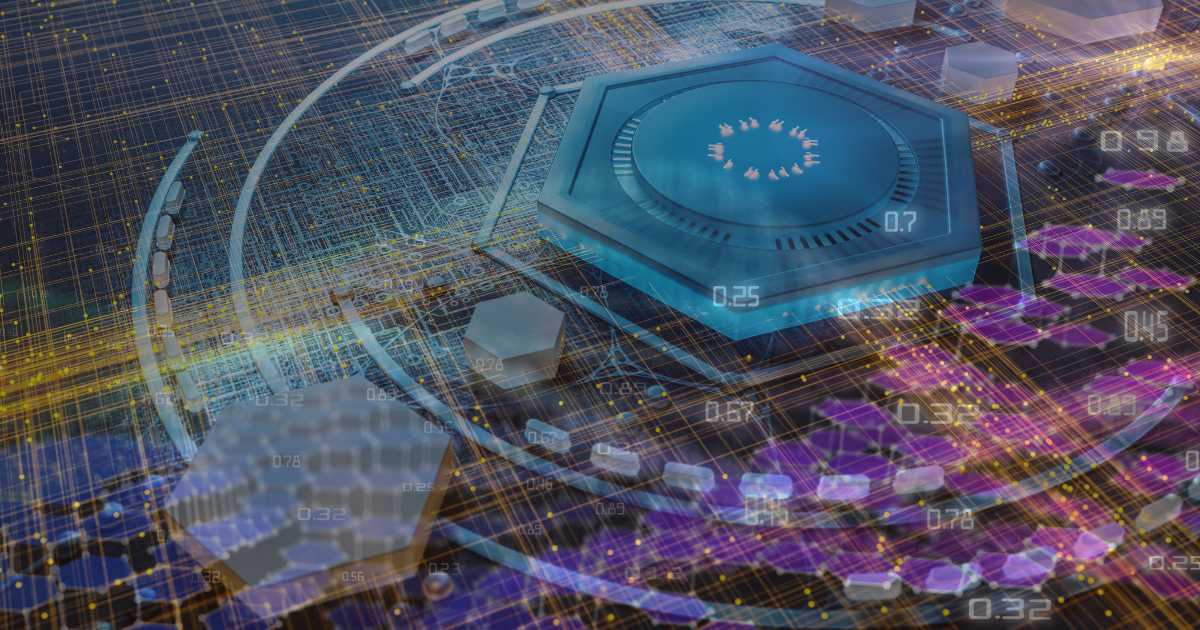Quantum computing is a swiftly evolving technology that utilizes quantum physics concepts to handle complex problems that are difficult for conventional computers to handle. Analysts believe that we will soon be entering a new age of quantum advancements where quantum computers will be used to expedite classical computers, just like GPUs. Quantum computing promises to enhance the way we handle data. It uses quantum bits(qubits), instead of conventional bits to accumulate and process information. This means that quantum computers can solve problems far more quickly than ordinary computers and do calculations that would otherwise take an impractical amount of time.

QUANTUM COMPUTERS
Quantum computers are advanced machines based on the concepts of quantum physics, a study of the nature and behavior of atoms and molecules. Quantum computers function by analyzing and supervising the behavior of these particles which is completely different from our regular work computers or even supercomputers. It’s an enhanced and formidable version of these computers. All modern computers use bits, which function as switches that can be 0 or 1. But this approach doesn’t solve all the issues that we have today. Some problems are too complex and rampant and would take traditional computers years to resolve.
Foundational Topics in Quantum Computing
SUPERPOSITION
The standard 0 and 1 bits are not used in a Quantum Computer. Instead, qubits are used. Any linear combination of a 1 or a 0 can be a qubit. This range of states is known as superposition.
GATES
Similar to classical computers, we connect qubits using gates. It changes the states of qubits into circuits. For example, we can have a qubit that’s at 0 states. Then we can use a gate, to put it in a superposition between 0 and 1. You can have more than one qubit and gate in a circuit. You must understand the circuit’s outputs for it to be useful.
MEASUREMENT
A qubit loses its superposition when measured and subsides into a simple 0 or 1. Which indicates that it has a 50/50 chance of measuring either a 0 or a 1. It is this mediate state that’s often referred to as qubits being a 0 and a 1 at the same time. It also implies that a significant quantity of information can be represented by a handful of qubits.
INTERFACE
A quantum condition is a linear combination of the 0 states and the 1 state. When an operation is applied to this, it can be thought of as simultaneously performing calculations in both the 0 and 1 states. It is this parallel computation that gives quantum its distinctive dominance.
However, as you may remember, a qubit loses its superposition and collapses into 0 or 1 when it is measured. That means we can only receive one instead of receiving all of the results from this parallel computation.
To ensure that the answer we receive is the right one., quantum gates must be set up in such a way as to amplify the correct answer and cancel out all the incorrect ones. This procedure is called interference.
ENTANGLEMENT
Qubits exhibit substantial correlations when entangled. In other words, altering the state of one qubit would also alter the state of another. So, if we entangle two qubits their states have a 50/50 chance of measuring a 00 and an 11, but will never be a 01 or a 10. In this case, if we modify just the state of one, the other one would also be tampered with.
What is Quantum computing used for?
The growing discipline of computing known as quantum computing is built on the concepts of quantum mechanics. Quantum computers, which can execute various tasks significantly quicker than classical computers, quantum computers use quantum bits (qubits) that can simultaneously represent 0 and 1. In contrast, traditional computers store and interpret data in bits that may only contain either 0 or 1. The following are a few possible applications for quantum computing:
Searching Databases
Grover’s algorithm is a quantum algorithm that is used to execute a search on an unstructured database. Suppose, you want to find a particular person’s name in a huge unsorted database. It might be pretty difficult to determine if you have a traditional computer. However, you could find it in less amount of time if you had a quantum computer that can execute Grover’s method.
Quantum Cryptography

Since quantum computers can execute numerous calculations at once, they have the potential to bypass any classical encryption system. They could get so good at decrypting that they might endanger the national security of every developed country .Even the most fundamental of our online services would need to be protected by new quantum encryption techniques. Scientists are already working on developing quantum cryptography so that businesses, governments, and citizens can protect their information.
Optimization
Quantum computing can be used to optimize areas such as finance, logistics, and transportation more efficiently than classical computing.
Development of new Drugs
Scientists often need to look at a molecule’s particular structure while developing new drugs and chemicals in order to understand its qualities and possible interactions with other molecules. Because every atom interacts with other atoms in complex ways, even comparatively small molecules are very challenging to accurately model with classical computers.
Nowadays, modeling simple molecules with few atoms is nearly impossible with current computers .Quantum computers are well suited to handle this problwm since the combination of atoms within molecules is a quantum system in and of itself.
Machine learning
Machine learning algorithms can be sped up with quantum computing, enabling quicker and more precise predictions and classifications.
Climate modeling
Quantum computers can be used to model and examine complex climate patterns and predict future climate change.
Pros and Cons of Quantum Computers
Quantum computing is a rapidly developing field, and like any technology, it has its pros and cons.
Pros
Could process a massive amount of complex data
Processes Data significantly quicker than classical computers.
More efficient
Capable of conveying more accurate answers
Quantum computing can provide new ways to approach problems that are intractable on classical computers.
Cons
Quantum computers are currently very expensive to build and operate.
Excess heat generated from computing
Only suitable for specific tasks
Quantum Computers vs Common Computers
Classical and quantum computers function and process information in distinct ways.
Bits, which can be either 0 or 1, are used by traditional computers to carry out logical operations and store data. Electronic circuits are used to process these bits, and memory devices are used to store the results.
On the other hand, quantum computers use quantum bits (qubits), which can simultaneously be in the states of 0 and 1. This enables the processing of several solutions to a problem in parallel.
Qubits may be entangled, meaning that even though they are far apart, the condition of one qubit depends on the condition of the other. This characteristic makes it possible for quantum computers to complete some tasks tenfold more quickly than traditional computers.
Although quantum computers have the potential to completely alter certain industries, they are still in the early phases of development and cannot yet complete all of the jobs that can be completed by classical computers.
For the majority of applications, traditional computers are still more prevalent and are better suited for jobs that call for handling vast volumes of data and carrying out simple logical calculations.
Conclusion
Quantum computing promises to bring about a new era of computing power and efficiency. With its ability to decipher complex problems in a fraction of the time it takes traditional computers, quantum computing could revolutionize many industries, including healthcare, finance, and artificial intelligence.
The future of quantum computing appears to be bright but there are still a lot of challenges to be solved before it can be extensively used. Nevertheless, its potential is undeniable and its development should be watched closely by anyone interested in the future of technology.


